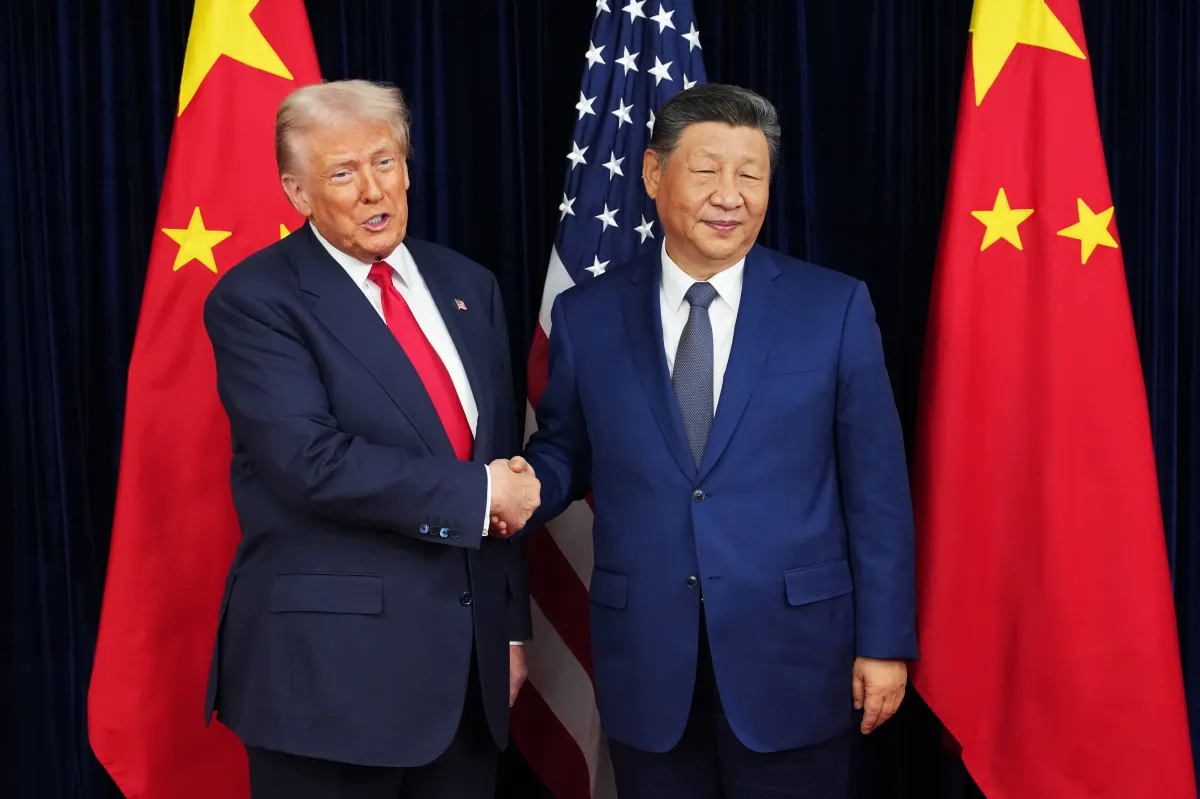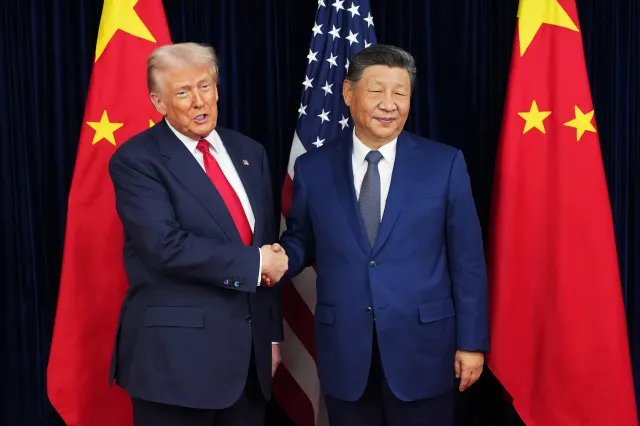
President Donald Trump has stepped into an escalating dispute between China and Japan over self-ruled Taiwan, speaking to the leaders of Asia’s two biggest economies and telling China that he understands its position on Taiwan, Chinese state media reported.
Newsweek contacted the White House for comment via email outside business hours.
Why It Matters
The dispute between China and Japan, which has included economic disruption and threats of military conflict between the East Asian neighbors, could have global economic, diplomatic and security implications if it escalates.
Japan is the most important U.S. ally in Asia—it hosts about 54,000 U.S. troops and provides a base for the U.S. to project its military power across the region—while Trump has also been keen to establish good ties with Chinese leader Xi Jinping and to seek his help in areas including the smuggling of drugs to the U.S., trade and the war in Ukraine.
What To Know
Trump said on Monday in a post on Truth Social that he had a “very good telephone call with President Xi,” which included discussion on Ukraine and Russia, the problem with fentanyl precursor chemicals smuggled to the U.S., and Chinese imports of U.S. soybeans and other farm produce.
Trump did not mention Taiwan, nor China’s dispute with Japan over the island in his post. The president has not publicly commented on the dispute between Japan and China. This erupted on November 7 when Japanese Prime Minister Sanae Takaichi told legislators that a Chinese use of force against Taiwan would constitute an existential crisis for Japan, which could justify a response by its military, the Self-Defense Forces.
Beijing fiercely objects to what it sees as any outside interference in its dealings with and plans for the island and it responded to Takaichi’s comments with its own threat of military action against Japan.
China has subsequently ramped up economic pressure on Tokyo, telling its citizens to avoid travel to Japan and effectively banning Japanese seafood imports. The dispute shows no sign of easing.
Chinese state media, in its report on Trump’s call, said Xi outlined China’s position on Taiwan, “underscoring that Taiwan’s return to China is an integral part of the post-war international order.”
Trump stressed to Xi “that the United States understands how important the Taiwan question is to China,” the Xinhua News Agency reported.
China has long claimed Taiwan as its territory and has threatened to achieve unification by force if necessary.
Although the U.S. does not officially recognize Taiwan, it has for decades been the island’s main ally and supplier of arms. Taiwan says the island’s people should decide their future.
Japanese media reported that Trump telephoned Takaichi after his call with Xi.
She said Trump had briefed her on his conversation with Xi but she declined to say if Trump had discussed Japan’s dispute with China.
“As it relates to diplomatic exchanges, I would like to refrain from disclosing details,” she told reporters.
“I believe that I was able to confirm the close cooperation between Japan and the United States,” she said.

What People Are Saying
President Donald Trump said of his conversation with Xi: “This call was a follow up to our highly successful meeting in South Korea, three weeks ago. Since then, there has been significant progress on both sides in keeping our agreements current and accurate. Now we can set our sights on the big picture.”
Taiwan Premier Cho Jung-ta told reporters on Tuesday: “We must once again emphasize that the Republic of China, Taiwan, is a fully sovereign and independent country…For the 23 million people of our nation, ‘return’ is not an option—this is very clear.”
What Happens Next
The diplomatic fallout of the dispute between Japan and China looks set to undermine tentative efforts to forge greater regional cooperation. China said on Monday that no consensus had been reached with Japan and South Korea on the timing of a trilateral summit that had been expected early next year.
